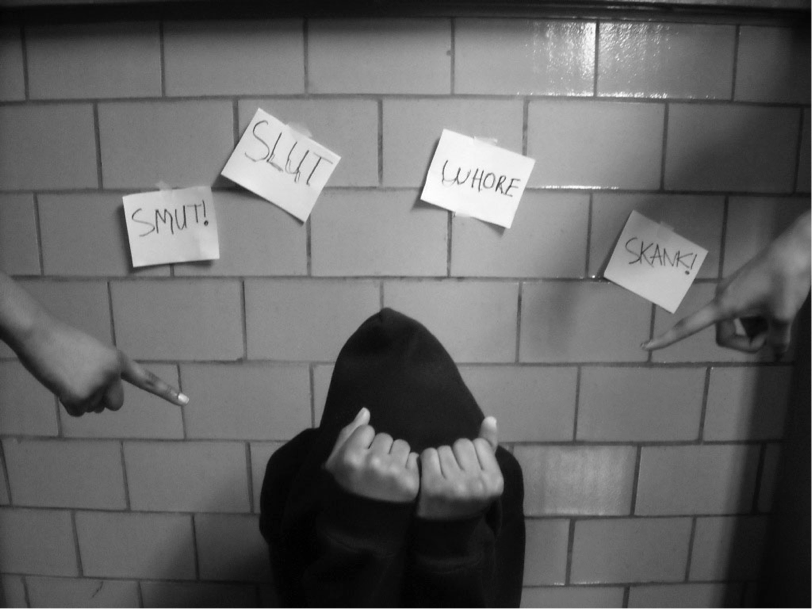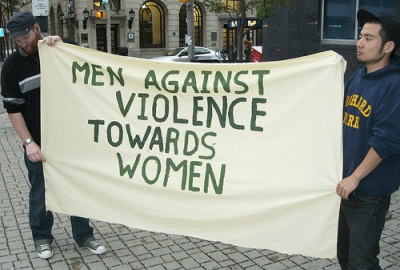Written by Tammy Lim, Change Maker
 I always aspired to be a purple-haired unicorn once I was done with Junior College. It was only after A-levels that I could reclaim my body as an individual, since the idea of ridiculously strict dress codes will not apply in my life (for the time being). After highlighting my hair a brilliant purple (I wanted to dye my whole head purple but my parents said it would be ‘weird’), I was then still called ‘weird’ by several of my male classmates. I casually brushed the comments off, until it escalated to the point that it became slut-shaming.
I always aspired to be a purple-haired unicorn once I was done with Junior College. It was only after A-levels that I could reclaim my body as an individual, since the idea of ridiculously strict dress codes will not apply in my life (for the time being). After highlighting my hair a brilliant purple (I wanted to dye my whole head purple but my parents said it would be ‘weird’), I was then still called ‘weird’ by several of my male classmates. I casually brushed the comments off, until it escalated to the point that it became slut-shaming.
One day, when my brother’s friends were over, I joined them for dinner. My brother, one of the few people who thought my purple hair was cool, excitedly told his friends that I had dyed my hair. That friend of his commented, “Well, at least you’re not like the other girls who dye their hair.” That statement raised a red flag in my mind, so in response, I prompted, “What do you mean by ‘the other girls’?”. To which he replied in a strangely matter-of-fact way, “They’re sluts.” That answer caused an eruption of laughter among my brother and his friends, while it left my mouth hanging open, blood boiling and very appalled.
It seemed like an incredibly innocuous incident that girls with dyed hair would encounter, but I found it extremely disturbing instead.
It was disconcerting to me when my brother’s friends were laughing at how other girls with dyed hair were called ‘sluts’, because it reinforced the notion that it was perfectly acceptable and even hilarious to call girls derogatory terms for their own pleasure, even though it made no sense. Also, them laughing stems from self-righteous behaviour: knowing that labelling others ‘sluts’ places themselves on a pedestal above girls who have many sexual partners (although it is truly alright to have many sexual partners). However, this present an ironic double standard as boys are celebrated for being sexual, since it is a sign of their supposed masculinity.
It was also strange that my brother’s friends made a mysterious correlation between having brightly coloured hair and being a slut – how does such brilliantly colourful hair even relate to a person having loads of sex? To me, they were being illogical and anyway, it is no one’s business to know if a person has loads of sex and much less condemn it. Though them spouting the common rhetoric that I’m “not like the other girls” was only said to make me feel like I’m the ‘special one’ who is exempted from the brutal ‘slut’ label, it does not make them any less offensive, because it is still sexist.
From this incident, I realized that slut-shaming has grown from bad to worse. It used to be an insult to girls who have sexual agency, but now, it has evolved to a derogatory umbrella term used to punish girls who deviate from the eye-pleasing and feminine ideal of a girl, even when it is completely unrelated to their sexuality. Imposing such an ideal on girls is not only harsh but also dehumanizing, as girls are expected to be sexy, but not sexual, which in itself is contradictory.
Since the incident, I have been trying to think of ways that I could have countered their misogynistic ways. It dawned upon me that it is much more difficult that simply telling them off: how was I supposed to educate a group of males who enjoyed degrading women in the most ridiculous ways? I still struggle to answer this question till today, but I believe the key is to show that feminism is not meant to police and oppress men (and women also), but rather that feminism liberates and benefits everyone, regardless of gender, through its inclusive nature.
To show others such problematic behaviour that is entrenched in their beliefs is akin to presenting themselves with a mirror and pointing out their flaws – something that is incredibly painful for them to recognise and change.
Slut-shaming is a pervasive form of sexist behaviour that should be eliminated. We all ought to think twice before we scream ‘slut’ at a girl who is simply choosing to take ownership of her body – we should simply respect that.
 About the Writer: Tammy is a recent A level graduate who occasionally writes about feminism and enjoys learning more about gender equality advocacy work, how to fight the patriarchy and being a better feminist. She is constantly with E.T pointing at a new horizon that is bright and full of gender equality.
About the Writer: Tammy is a recent A level graduate who occasionally writes about feminism and enjoys learning more about gender equality advocacy work, how to fight the patriarchy and being a better feminist. She is constantly with E.T pointing at a new horizon that is bright and full of gender equality.








 Increasingly, the proliferation of social media and the ability to hide behind anonymity have fuelled malicious attacks on individuals perceived as sexually promiscuous. In 2013, the hashtag #slanegirl was particularly infamous, as Twitter users collectively denounced a girl caught performing oral sex at a concert venue, with some even going to the extent of publishing her full name and age on online public spaces. More recently, schools in USA are facing protests after humiliating students who were perceived to be inappropriately dressed by forcing them to wear loose fitting “shame suits”. Such behavior, however, irresponsibly perpetuates the damaging outlook that victims are responsible for their own plight, while removing responsibility from perpetrators.
Increasingly, the proliferation of social media and the ability to hide behind anonymity have fuelled malicious attacks on individuals perceived as sexually promiscuous. In 2013, the hashtag #slanegirl was particularly infamous, as Twitter users collectively denounced a girl caught performing oral sex at a concert venue, with some even going to the extent of publishing her full name and age on online public spaces. More recently, schools in USA are facing protests after humiliating students who were perceived to be inappropriately dressed by forcing them to wear loose fitting “shame suits”. Such behavior, however, irresponsibly perpetuates the damaging outlook that victims are responsible for their own plight, while removing responsibility from perpetrators.
